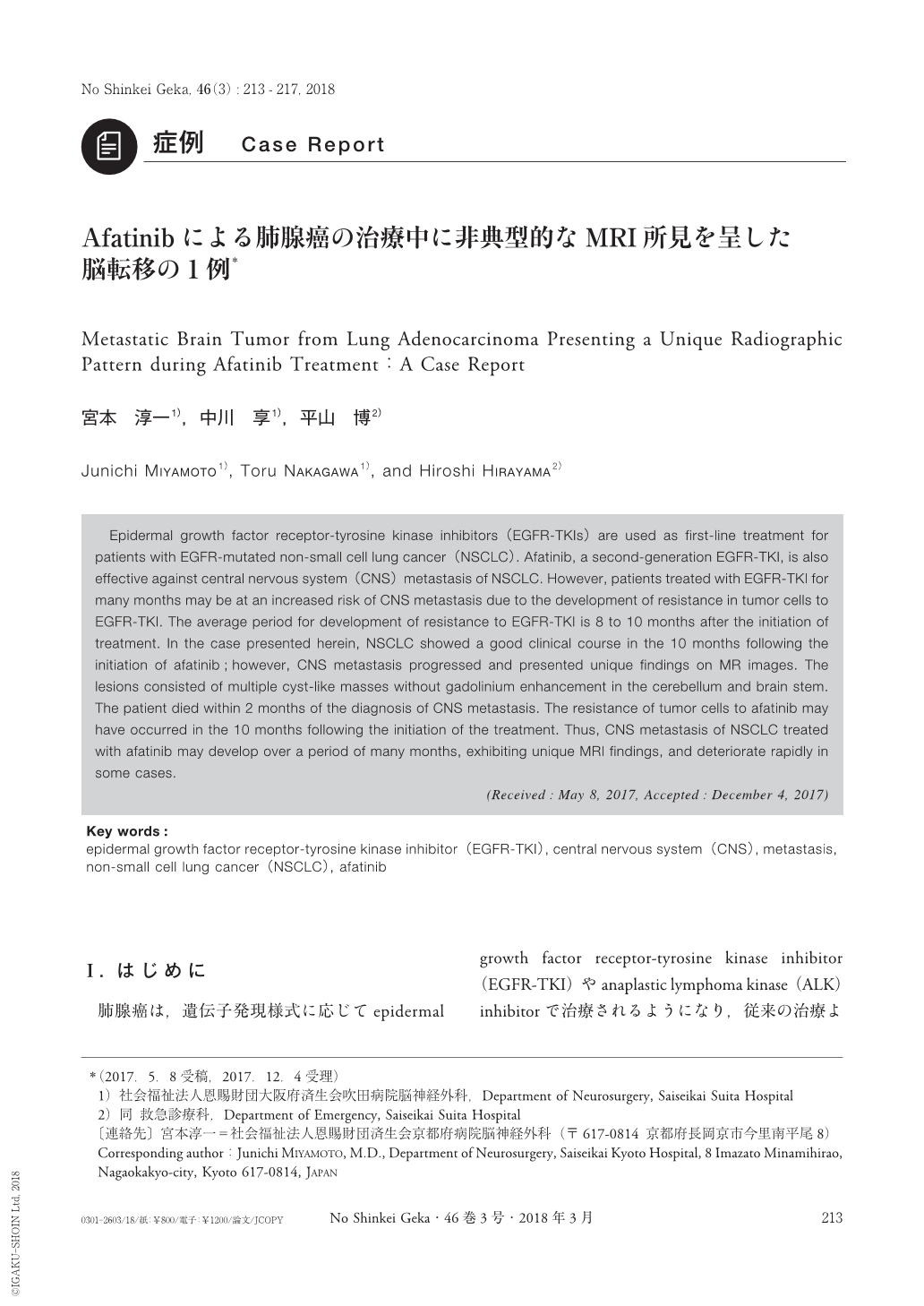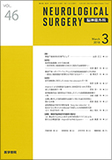Japanese
English
- 有料閲覧
- Abstract 文献概要
- 1ページ目 Look Inside
- 参考文献 Reference
Ⅰ.はじめに
肺腺癌は,遺伝子発現様式に応じてepidermal growth factor receptor-tyrosine kinase inhibitor(EGFR-TKI)やanaplastic lymphoma kinase(ALK)inhibitorで治療されるようになり,従来の治療よりもprogression free survival(PFS)が延長した9,11).EGFR-TKIの中でafatinibは脳転移に対して有効とされる3,8).今回われわれは,afatinibで治療中に,原発巣がpartial remission(PR)であるにもかかわらず脳転移巣が悪化し,非典型的なMRI所見を呈して診断に苦慮した肺腺癌脳転移の1例を経験した.Afatinibでの治療中の脳転移評価における留意点について文献的に考察し報告する.
Epidermal growth factor receptor-tyrosine kinase inhibitors(EGFR-TKIs)are used as first-line treatment for patients with EGFR-mutated non-small cell lung cancer(NSCLC). Afatinib, a second-generation EGFR-TKI, is also effective against central nervous system(CNS)metastasis of NSCLC. However, patients treated with EGFR-TKI for many months may be at an increased risk of CNS metastasis due to the development of resistance in tumor cells to EGFR-TKI. The average period for development of resistance to EGFR-TKI is 8 to 10 months after the initiation of treatment. In the case presented herein, NSCLC showed a good clinical course in the 10 months following the initiation of afatinib;however, CNS metastasis progressed and presented unique findings on MR images. The lesions consisted of multiple cyst-like masses without gadolinium enhancement in the cerebellum and brain stem. The patient died within 2 months of the diagnosis of CNS metastasis. The resistance of tumor cells to afatinib may have occurred in the 10 months following the initiation of the treatment. Thus, CNS metastasis of NSCLC treated with afatinib may develop over a period of many months, exhibiting unique MRI findings, and deteriorate rapidly in some cases.

Copyright © 2018, Igaku-Shoin Ltd. All rights reserved.


